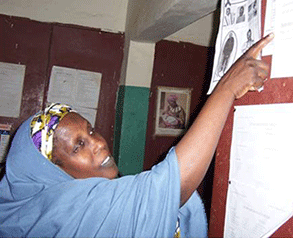Resource Spotlight: Human Resources Collaborative: Improving Maternal and Child Care in Niger
This report details the results and impact of a program to address the health workforce crisis begun in 2009 with Niger's Ministry of Public Health and the Health Care Improvement Project (HCI). With too few staff and no prospects for additional staff, the Ministry sought to improve the management of human resources in selected facilities and management offices in the Tahoua Region. The predecessor project to HCI had successfully implemented quality improvement (QI) interventions in the same region. The project built on quality improvement interventions that had already been implemented in the region and the country's National Health Development Plan, which targets maternal/child health and human resources.
HCI proposed applying the collaborative improvement approach to improve human resources management in Tahoua. The approach features QI teams that work at their own facilities with experts from HCI and the national health ministry to learn the evidence-based interventions that will improve health outcomes. What distinguished the Niger HR collaborative was that no clinical interventions were proposed, only HR interventions. All major indicators of this project evaluation showed clear improvement, and in each case, a distinct shift occurred during the early to mid-point of implementation, signifying that the improvement was statistically significant. [adapted from author]
View this resource.
The HRH Global Resource Center has other resources on this topic including:
- Aligning and Clarifying Health Worker Tasks to Improve Maternal Care in Niger: the Tahoua Region Human Resources Quality Improvement Collaborative
- Reproductive Health Services in Malawi: An Evaluation of a Quality Improvement Intervention
- Using Performance and Quality Improvement to Strengthen Skilled Attendance
For additional resources on this topic, visit the Quality Improvement subject category.
Past Resource Spotlights
- 1460 reads





